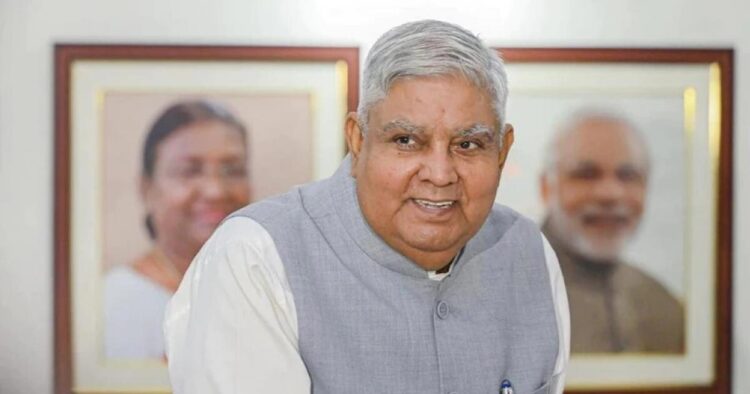India’s Vice President, Jagdeep Dhankhar, recently shared an optimistic outlook on the country’s economic future. He predicted that India’s rise in the next five years will be dramatic, comparing it to a rocket defying gravity.
Dhankhar credited this anticipated growth to a transparent and accountable decision-making process that has spurred exponential economic development.
Speaking at the Narsee Monjee Institute of Management Studies (NMIMS) University, Dhankhar emphasized that India is now viewed as a powerful and dynamic economy. He pointed out that, over the past decade, global institutions have shifted from offering advice to seeking India’s insights. This, he asserted, marks a significant transformation in India’s global standing.
The Vice President highlighted the importance of education in driving India’s progress. He stated that education is the most effective tool for achieving equality and emphasized that higher educational institutions play a crucial role in shaping the nation’s future.
As India aims to become a developed country by 2047, Dhankhar stressed the need for educational institutions to foster innovation, entrepreneurship, and societal values.
Dhankhar noted that India was once considered a “sleeping giant,” but now, its growth is seen as unstoppable. He proudly mentioned that India’s economy, which was smaller than the economies of London and Paris in 1990, has now surpassed those of the UK and France. This rapid growth has earned India accolades from international organizations.
In his lecture, Dhankhar urged educators to promote interdisciplinary approaches, collaborate with industries, and create curricula that equip students to tackle contemporary challenges with creativity and conviction. He also emphasized the need for India to preserve its rich cultural heritage while embracing global best practices.
ALSO READ: “India Invests $1 Billion in Arunachal Pradesh Hydropower Amid China Tensions”
The Vice President called on higher educational institutions to contribute to the mission of making India a developed nation. He referred to these institutions as the “architects of tomorrow’s India,” responsible for imparting knowledge, nurturing skills, and instilling values.
Dhankhar also highlighted the importance of creating accessible, affordable, and sustainable solutions to the country’s challenges. He stressed that the vision of a developed India, or “Viksit Bharat,” is not just a goal but a sacred mission that requires contributions from every citizen and institution.
Dhankhar reminded the audience that building a developed India will involve addressing issues in villages, urban slums, and remote areas, not just in air-conditioned offices. He encouraged everyone to stay connected with the real challenges faced by their fellow citizens as they progress in their careers.

















Comments